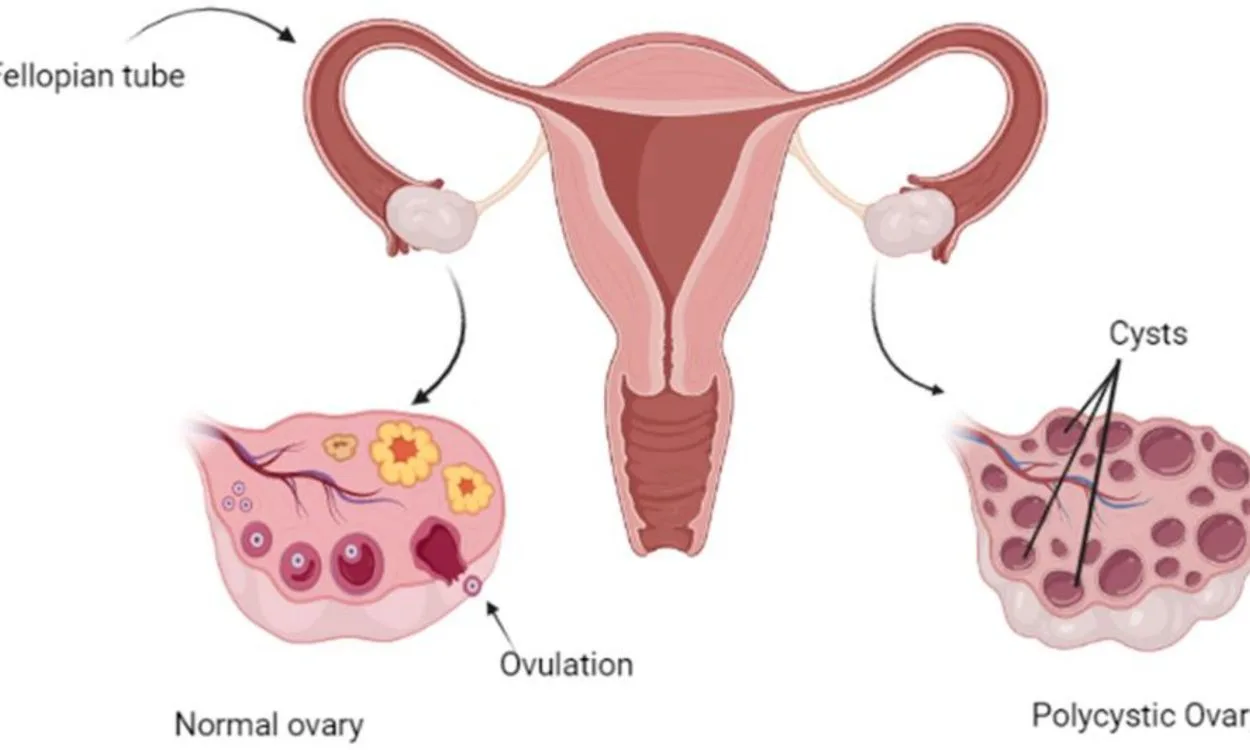What causes PCOD?
PCOD, or Polycystic Ovary Syndrome, is a common hormonal disorder that affects many women, especially in the Indian population. It is a condition characterized by the presence of multiple small cysts in the ovaries. PCOD can cause a range of symptoms and health issues, including irregular menstrual cycles, fertility problems, weight gain, acne, and excessive hair growth.
The exact cause of PCOD is not known, but there are several factors that contribute to its development. Here are some of the main factors that can cause PCOD:
- Hormonal Imbalance: PCOD is primarily caused by a hormonal imbalance in the body. Women with PCOD have higher levels of androgens (male hormones) like testosterone and reduced levels of estrogen. This imbalance disrupts the normal ovulation process and leads to the formation of cysts in the ovaries.
- Insulin Resistance: Insulin resistance is another common factor in PCOD. It occurs when the body’s cells become less responsive to the hormone insulin, which is responsible for regulating blood sugar levels. This leads to high levels of insulin in the blood, which in turn stimulates the ovaries to produce more androgens.
- Genetics: There is evidence to suggest that PCOD can run in families, indicating a genetic component to the condition. If you have a close relative, such as a mother or sister, with PCOD, you may be at a higher risk of developing the condition yourself.
- Lifestyle Factors: Certain lifestyle factors can contribute to the development of PCOD. These include a sedentary lifestyle, poor diet, and excessive stress. Lack of physical activity and an unhealthy diet can lead to weight gain, which further exacerbates hormonal imbalances and insulin resistance.
- Environmental Factors: Exposure to certain environmental factors, such as endocrine-disrupting chemicals found in plastics and pesticides, may also play a role in the development of PCOD. These chemicals can interfere with the normal functioning of hormones in the body and contribute to hormonal imbalances.
It’s important to note that PCOD is a complex condition and can vary from person to person. The combination of these factors, along with individual genetics and lifestyle choices, can contribute to the development and severity of PCOD symptoms.
If you suspect that you may have PCOD, it is essential to consult a healthcare professional for a proper diagnosis and treatment plan. PCOD can have long-term health implications, including an increased risk of diabetes, cardiovascular disease, and infertility. Early detection and management are crucial for maintaining overall health and well-being.
If you are looking for personalized support and guidance in managing PCOD, Fitpaa can help. Our end-to-end AI-driven Metabolism monitoring and management technology, combined with the expertise of our team of fitness coaches, nutritionists, and doctors, can provide you with the tools and support you need to achieve your health and fitness goals. Download the Fitpaa app today and take the first step towards a healthier and happier you.
Remember, taking control of your health is possible, and with the right support and guidance, you can overcome the challenges of PCOD and lead a fulfilling life.









